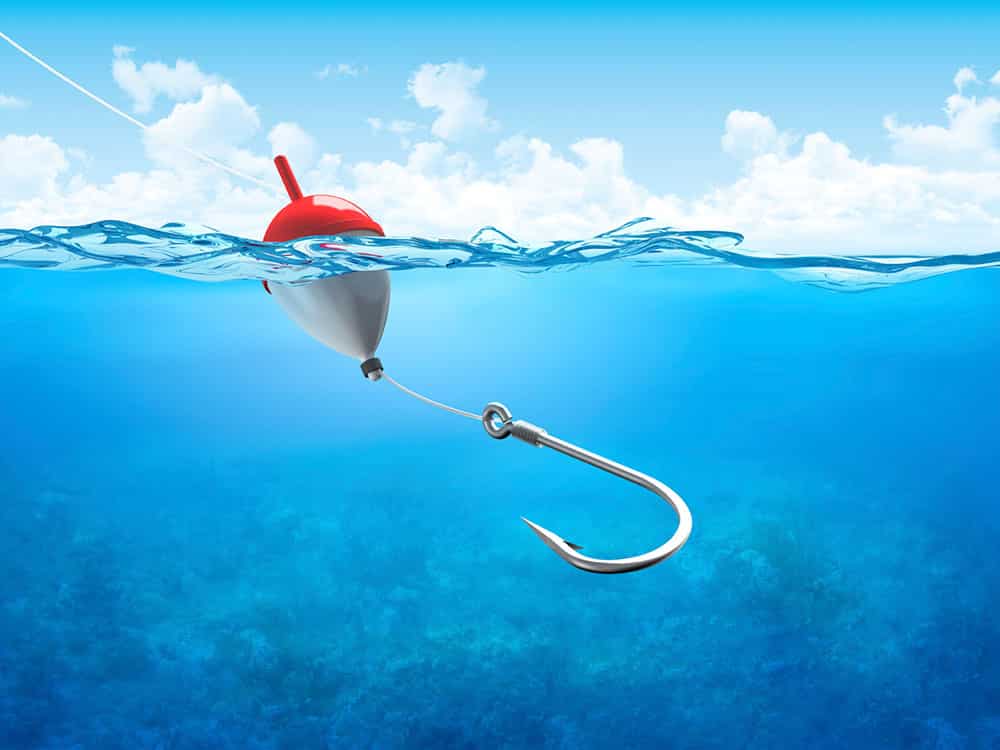If you fish a lot, you no doubt have cut the line of a fish that swallowed your hook because you could not retrieve it or have seen wildlife that lives with fish injured by fishing hooks and are left to fend for themselves. Fish hooks are meant to be nasty and last long. How Long Does a Fishhook Take to Decompose?
Most fish hooks will dissolve naturally based On:
- age of the fish hook
- material that the fish hook is made of
- surrounding environmental conditions the hook is exposed to
- size of the fish hook
- fresh or saltwater
The time it takes for fish hooks to decompose ranges from months to years & varies for each hook
How Long Does a Fishhook Take to Decompose
How long does a fishhook take to decompose? A fishing hook will start to decay given naturally. The fish hook will begin to rust and break off before long. In spite of this, you should keep in mind the following factors when assessing the long-term impacts of hooks that are left behind. How long it takes for a fish hook to decompose depends on a few variables. A fish hook can take between a couple of months to several years to break down the majority of the fish hook.
- Age of the fish hook-Any type of fishing hook can suffer from damage from this kind of handling, and use, resulting in diminished quality and life expectancy.
- The material fish hook is made from stainless steel hooks are more durable than wire hooks, as wire hooks tend to rust quickly. That is because there is no protective coating on hooks that are made of wires. If you know how to clean rusty fishing hooks you can increase their lifetime. Thus, they will break down faster compared to fish hooks made using stainless steel. Stainless steel will hold up better than most other materials when worn out over time.
- The size of the fish hook– Bigger fish hooks stick around longer and will take more time to decompose than the smaller ones. The breakdown process is pretty straightforward if there’s less mass the faster it goes away and the more mass the longer it stays.
- Environmental Conditions-If they’re rusted, bent, or too old, they’re more likely to break or fall off. Environmental factors surrounding the lost hook should be taken into account as well. In contrast to freshwater, saltwater is more abrasive and dissolves metals rapidly.
What Happens When a Fish Swallows a Hook
What Happens When a Fish Swallows a Hook? Releasing a fish that has swallowed a hook is a safer decision compared to trying to retrieve the hook. A fish has a very strong stomach and the hook can actually dissolve away over a period of time once it is down in the stomach.
A fish’s stomach and body have enough acidic enzymes to naturally break down the materials that make up a hook. A hook will take time to rust away in the stomach and is dependent on the thickness of the hook. The thinner the hook, the faster the fish hook will break down.
A hook will rust away in a fish, but it can take a while, especially if the hook is plated or made of thick metal. But fish’s stomachs are pretty tough. All out attempts should be made to retrieve the fish hook from the hooked fish. Whether the fishing hook is in the hooked fish’s mouth or in his throat working its way down to its belly.
The best is to do everything possible to avoid gut-hooking your fish. The process of removing the hook from the throat is also traumatic for the fish, although they may continue to live a healthy life if they are released relatively unhurt. Having said that, it can also be very easy to cause damage when you are removing a swallowed hook.
Avoid leaving too much slack in the line, as that is when there is a maximum chance for the fish to get gut hooked. If the fish comes for the bait and the line is slack, there is a greater chance the fish will swallow the hook, as it cannot tell that the hook is immobile. If you are casting very long distances, that also increases the chances of your fish getting gut hooked.
Do Fishing Hooks Dissolve Faster in Saltwater
Yes, it can take fishing hooks less time to break down the fish hook and will dissolve faster in saltwater because moisture, salinity, and oxygen combine to corrode metal objects. Saltwater is highly corrosive on metal objects. Saltwater is up to five times more corrosive than freshwater, which means your metal fishing hooks are prone to breaking down. This factor is beneficial if you lose a hook in the saltwater, but it is terrible if you’re fishing with them.
Quick Dissolving Fish Hooks
Quick-dissolving fishhooks are made of a plastic or metal frame with a hole in the center. You insert the fishhook into the hole, then pour water over it. As the water dissolves the fishhook, it pulls the fish with it. Quick dissolving fishhooks are especially helpful when you’re fishing in difficult or dangerous waters.
They allow you to remove the fishhook without risking injury to the fish or yourself. This type of fishhook is often used in fishing because it is easier to remove. The fish hooks are made of a material that dissolves in water, so the hooks can be easily removed.
There are many benefits to fishing a quick-dissolving fish hook. They are easier to remove the fishhook from the fish’s flesh, there is less likelihood of causing pain or injury, and it is less expensive than another fishhook. By using a quick-dissolving fish hook, we are helping to protect the environment and the fish. Anglers are also reducing the amount of time that the fish is suffering.
Biodegradable Fishing Hooks
There have been many ideas to bring Biodegradable hooks to market. Some fish hook companies use a different approach where the hook is partially dissolvable and could dissolve once wet in a matter of a few days. The Biodegradable shank part of the hook is made from polymeric plastic that is passed naturally. The hook section is made from a water-composite crystalline material such as salt or protein that will break down the part of the fish hook that is the most dangerous.
So when a fish hook gets caught in a bird’s beak or belly of a fish, the hook section of the fish hook will disintegrate and disappear leaving the rest of the fish hook in the body. This part of the hook will not hurt fish or animals and is able to leave its body naturally.
The jury is still out on these hooks because the material they are made from has some negative issues like breaking apart too soon and hurting fish or the people using them defeating the reason you are using them.
*Always use Barbless fishhooks- these fishhooks are a type of fishhook that doesn’t have any barbs. This makes them less likely to catch on to anything, making them easier to remove. They also have slightly smaller jaws, which makes them better suited for delicate fish.
JimGalloway Author/Editor

References:
DreanFishing-How Long, Does a Fish Hook take to Decompose?
Related Questions:
Will stomach acid dissolve a fish hook?
Do fish hooks rust away?
